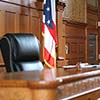Editor's Note: Privacy

Do citizens care about privacy anymore? If they don’t, must our public agencies nonetheless protect it? These are questions with answers complicated by the accepted expansion of technology into our personal lives and institutions. Even so, most of us maintain some privacy boundaries. We don’t want our data hacked or our identity stolen, and some of us don’t want to be tracked, monitored, or subjected to targeted marketing. Yet, when we download apps, post to social media, and use our Internet of Things (IoT) devices, we effectively loosen our privacy boundaries in the interest of efficiency, convenience and connectedness. When we operate drones and enable our surveillance systems, we effectively loosen the privacy boundaries of others too.
When it comes to the government’s use of technology and data, the boundaries are tighter and the expectations are higher. The government is both a technology user and a guardian of the public and its data. Public agencies like fire departments, cities and schools must balance the expectation that they invest in technology that saves lives, decreases crime, and enhances learning with their various legal obligations. In using technology to identify threats to public safety, for instance, public agencies must respect our constitutional “right to privacy” which protects citizens from governmental intrusion. But, the government’s obligations extend beyond this right to privacy. Public agencies must often collect, but not compromise, data about the public. They also must protect the public from those whose zeal for technology may endanger or violate the privacy rights of others.
In this issue of the TIP Jar, we discuss how public agencies must not only respect privacy, but protect it, as they consider technologies like drones, surveillance cameras, and education technology. Lozano Smith is compiling resources and best practices on information privacy and security to help public agencies navigate these emerging opportunities and challenges. As always, if you have questions or need assistance with a legal issue involving technology, feel free to get in touch.
When it comes to the government’s use of technology and data, the boundaries are tighter and the expectations are higher. The government is both a technology user and a guardian of the public and its data. Public agencies like fire departments, cities and schools must balance the expectation that they invest in technology that saves lives, decreases crime, and enhances learning with their various legal obligations. In using technology to identify threats to public safety, for instance, public agencies must respect our constitutional “right to privacy” which protects citizens from governmental intrusion. But, the government’s obligations extend beyond this right to privacy. Public agencies must often collect, but not compromise, data about the public. They also must protect the public from those whose zeal for technology may endanger or violate the privacy rights of others.
In this issue of the TIP Jar, we discuss how public agencies must not only respect privacy, but protect it, as they consider technologies like drones, surveillance cameras, and education technology. Lozano Smith is compiling resources and best practices on information privacy and security to help public agencies navigate these emerging opportunities and challenges. As always, if you have questions or need assistance with a legal issue involving technology, feel free to get in touch.
As the information contained herein is necessarily general, its application to a particular set of facts and circumstances may vary. For this reason, this News Brief does not constitute legal advice. We recommend that you consult with your counsel prior to acting on the information contained herein.





